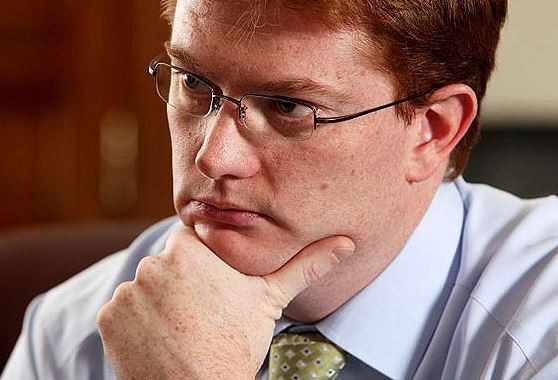Danny Alexander, Chief Secretary to the Treasury, said on Sunday that firms that help tax dodgers hide their billions and not pay tax should be hunted down and prosecuted, following the shocking news that London-based HSBC, one of the world’s largest banks, had been doing just that in its private bank in Switzerland.
Mr. Alexander believes that “aiding an abetting” should also apply in tax legislation.
The HSBC scandal has pushed the issue of consultancies and financial institutions encouraging super rich individuals and multinational corporations either to avoid tax (legal) or evade tax (illegal) to the fore of the political debate just months before May’s general election.

Those aiding and abetting tax dodgers should also be hunted down and punished, Mr. Alexander believes.
The taxpayer, after bailing out the rich fat cats in several financial institutions following the last global financial crisis, will probably be swayed by the party that comes down the most heavily against firms that fuel corruption, cronyism and possibly another crisis.
Mr. Alexander proposes said the new offence of corporate failure to prevent financial crime would include aiding and facilitating tax evasion. The firms that help tax dodgers will face the same punishment as the evaders themselves.
Mr. Alexander, a British Liberal Democrat politician, had been hoping that the new measures would be imposed before the elections. If not, he proposes that they become part of his party’s election manifesto.
Tax evasion is already a crime in the UK. Mr. Alexander’s new legislation would make it clear that firms assisting tax dodgers would be liable to penalties.

The British tax payer is fed up with bailing out financial institutions to the tune of tens of billions of pounds for incompetence, cronyism and illegal activities. In an election year, tax evasion is a major campaign theme for the political parties.
Mr. Alexander told the BBC’s Andrew Marr Show:
“Organisations, be they accountants, banks or whatever, who help people evade tax will be liable for this new offence and crucially liable for financial penalties.”
“So, for example, if their customers have to pay back hundreds of millions of pounds in tax then those organisations should have to match that with hundreds of millions of pounds of their own money and I think that’s a very tough disincentive to them to get involved in this in the first place.”
“This is taboo. This is something that absolutely mustn’t happen in our society and we still have a problem with some people thinking they can get away without paying their fair share of tax.”
What is the difference between tax avoidance and tax evasion
Tax avoidance is legal. It is the legitimate minimizing of taxes, using methods that comply with the law.
Tax evasion, however, is a crime. The perpetrator does not report his or her income and does not pay taxes according to the law.
We mostly think of tax evasion as associated just with individuals, and not businesses. But it applies to both. Tax evasion can be practiced in businesses at several levels.
Mr. Alexander said in a statement:
“It is a crime, plain and simple. If someone helps a break into your home they end up in the dock as an accomplice. It should be the same if some helps a tax evader.”
He also believes that codes of practice for consultancies that advise on tax affairs should be tightened up.
HSBC has admitted to illegal practices at its private Swiss bank, where super-wealthy customers were helped to hide hundreds of millions of dollars in assets up to 2007.
According to the Labour Party, David Cameron’s Conservative party accepted political donations from seven individuals who were listed in the Swiss bank tax-dodging scandal.
HSBC spreads SORRY message across several Sunday newspapers
Last weekend, HSBC published a long “SORRY” letter in several British Sunday newspapers, where it expressed its “sincerest apologies” for helping super-rich clients dodge taxes at its Swiss private bank.
The banking giant admitted it had not complied with regulations after newspapers reported it had helped over one hundred multi-millionaires hide billions of dollars’ worth of assets before the global financial crisis.
HSBC’s Chairman Douglas Flint and CEO Stuart Gulliver will give evidence before the Parliamentary Treasury Committee on February 25th.
Earlier this month, the Public Accounts Committee accused PricewaterhouseCoopers of promoting tax avoidance “on an industrial scale”. It accused the London-based professional services firm of helping hundreds of multinationals cut their corporation tax by setting up bases in Luxembourg.
BBC Video – Andrew Marr with Danny Alexander

